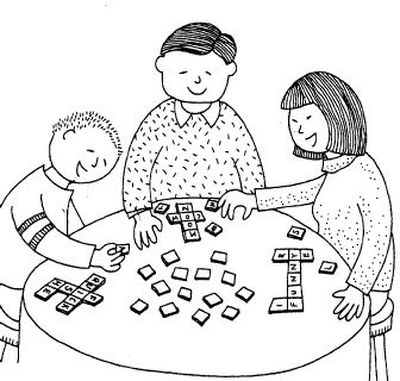Quick games to keep minds sharp

As the years quickly slip by, I have decided that one of my New Year’s resolutions is to build a better brain. If you’re like me, the old “think tank” can always use a little exercise, so I came up with a couple of fun games to help everyone in the family stay in shape.
I-Spy Memory Game
Pull out your kitchen junk drawer. Gather family members around the drawer, say “Ready, Set, Go!” and then quietly study the contents for 20 seconds. Hide the drawer and ask everyone to write a list of the items they remember seeing. Designate an amount of time for writing, depending on the ages of the children. When time is up, read off your answers, and the best memory wins! Lots of storage areas are perfect for this game, such as a tackle box, sewing basket or even your desk drawer when the kids visit your office.
Take Two
When you don’t have time for a standard Scrabble game, try this speedy version that uses the letter tiles without the board. My daughter plays it with her friends, and now she has our entire family hooked!
Turn all tiles upside down in the center of the table. Each player takes seven tiles, turns them over and quickly creates words in his own crossword arrangement in front of him. Each word must connect with another, as it would on a Scrabble board. As soon as one of the players has used all seven tiles to form his words, he shouts “Take 2.”
Each player draws two more tiles and attempts to work them into their arrangements. Continue this fast-paced play with each player drawing two tiles when someone shouts “Take 2.” (As the game progresses, players may rearrange their words as they work in their new letters.) When all tiles are gone from the center, the game proceeds until one player has used up all his letters. Count individual scores by adding up the points on each of the letters for all words formed. Deduct points for tiles not used. Highest score wins.